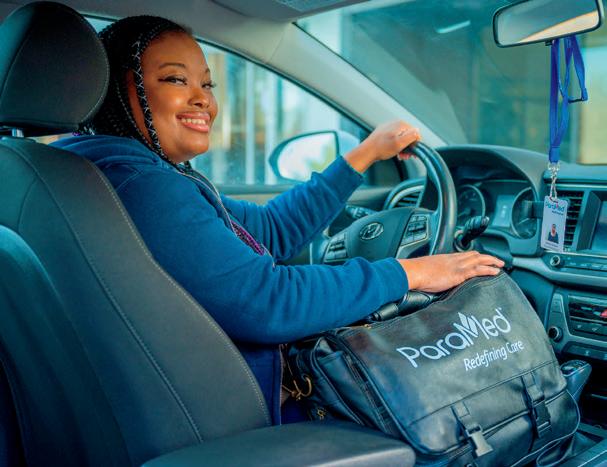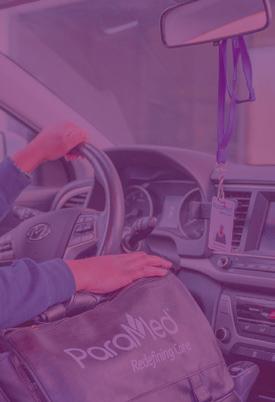
1 minute read
Ensuring our patients’ “Voyce” is heard
By Ellie Stutsman
Accessing Canada’s healthcare system can be a frightening and stressful experience for those with a language barrier. For patients and their families who are not proficient in English, they may struggle to express their concerns and symptoms and to understand medical terminology. This can lead to misunderstandings, frustration and even a lack of trust between patients and health-care providers.
“People are at their most vulnerable state when trying to access health services, and the inability to speak in their native tongue to clinicians is an incredibly challenging barrier,” says Ted Scott, chief innovation officer at Hamilton Health Sciences (HHS).
“So, we’re excited that Voyce can help us overcome this barrier and create a more seamless experience when accessing health care in our community.”
A Communication Solution
As one of Ontario’s largest and most comprehensive health-care organiza- tions, HHS recognizes the importance of equity, diversity, and inclusion in delivering exceptional care to our diverse community of 2.3 million people.
When it comes to interpretive services, HHS previously relied on in-person interpreters or phone services, however, they were time-consuming and often unavailable in a timely manner.

“Improving communication is essential to us as an organization that’s on a mission to provide ‘best care for all,’ says Scott. “Voyce was identified as an opportunity to serve our commu- nity better, but we needed to evaluate it in our organization to understand where and how we could best use this service.”
Ontario Bioscience Innovation Organization (OBIO®), a not-for-profit organization dedicated to advancing health technology innovation and commercialization, facilitated a partnership between HHS and Voyce Canada. This Toronto-based technology-driven company offers a language interpretation solution. Through this partnership, HHS is evaluating










